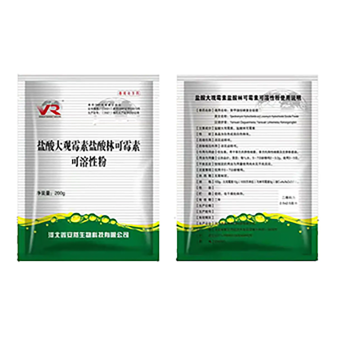- Afrikaans
- Albanian
- Amharic
- Arabic
- Armenian
- Azerbaijani
- Basque
- Belarusian
- Bengali
- Bosnian
- Bulgarian
- Catalan
- Cebuano
- Corsican
- Croatian
- Czech
- Danish
- Dutch
- English
- Esperanto
- Estonian
- Finnish
- French
- Frisian
- Galician
- Georgian
- German
- Greek
- Gujarati
- Haitian Creole
- hausa
- hawaiian
- Hebrew
- Hindi
- Miao
- Hungarian
- Icelandic
- igbo
- Indonesian
- irish
- Italian
- Japanese
- Javanese
- Kannada
- kazakh
- Khmer
- Rwandese
- Korean
- Kurdish
- Kyrgyz
- Lao
- Latin
- Latvian
- Lithuanian
- Luxembourgish
- Macedonian
- Malgashi
- Malay
- Malayalam
- Maltese
- Maori
- Marathi
- Mongolian
- Myanmar
- Nepali
- Norwegian
- Norwegian
- Occitan
- Pashto
- Persian
- Polish
- Portuguese
- Punjabi
- Romanian
- Russian
- Samoan
- Scottish Gaelic
- Serbian
- Sesotho
- Shona
- Sindhi
- Sinhala
- Slovak
- Slovenian
- Somali
- Spanish
- Sundanese
- Swahili
- Swedish
- Tagalog
- Tajik
- Tamil
- Tatar
- Telugu
- Thai
- Turkish
- Turkmen
- Ukrainian
- Urdu
- Uighur
- Uzbek
- Vietnamese
- Welsh
- Bantu
- Yiddish
- Yoruba
- Zulu
8 月 . 06, 2024 06:36 Back to list
Using Oxytetracycline Injectable in Chickens for Effective Treatment of Bacterial Infections
Oxytetracycline Injectable for Chickens A Comprehensive Overview
Oxytetracycline is a broad-spectrum antibiotic belonging to the tetracycline class, widely used in veterinary medicine, particularly in poultry. With its effectiveness against a variety of bacterial infections, it has become a crucial tool in maintaining the health and productivity of chickens. This article delves into the applications, benefits, and considerations surrounding oxytetracycline injectable formulations for chickens.
Applications of Oxytetracycline in Poultry
Oxytetracycline is primarily administered to treat respiratory infections, enteritis, and other bacterial diseases in chickens. Common pathogens that it targets include Mycoplasma, E. coli, and Salmonella, which can severely impact the health of the birds and result in significant economic losses for poultry farmers. By controlling these infections, oxytetracycline helps reduce mortality rates and improve the overall performance of the flock, including growth rates and egg production.
Benefits of Injectable Formulations
The injectable form of oxytetracycline offers several advantages over oral formulations. One significant benefit is the rapid absorption and effectiveness of the drug. When administered via injection, oxytetracycline enters the bloodstream directly, providing immediate therapeutic levels in the body. This is particularly important in cases of severe infections where time is of the essence. Additionally, injectable oxytetracycline can offer prolonged therapeutic effects, allowing for fewer doses compared to oral alternatives.
Another advantage is the lower risk of failure due to issues such as poor feed intake or digestive disorders that can affect the bioavailability of oral medications. In scenarios where birds may not be eating well due to illness, an injectable option ensures that the drug is administered effectively, providing a reliable means of treatment.
oxytetracycline injectable for chickens

Administration and Dosage
The administration of oxytetracycline should always be conducted under the guidance of a veterinarian to ensure proper dosage and minimize the risk of complications. The recommended dosages can vary based on the specific condition being treated and the individual animal's health status. Generally, the drug is administered intramuscularly or subcutaneously, and care must be taken to inject the solution into appropriate sites to avoid tissue damage.
Concerns and Considerations
Despite its benefits, the use of oxytetracycline in poultry raises several concerns that farmers and veterinarians should consider. The potential for antibiotic resistance is a significant issue in veterinary medicine. Overuse or misuse of antibiotics like oxytetracycline can lead to the development of resistant bacterial strains, compromising the efficacy of treatment not only for chickens but for other livestock and even humans. As such, prudent use of oxytetracycline is essential, which includes adhering to withdrawal periods before slaughter to ensure that antibiotic residues do not enter the food supply.
Furthermore, the regulatory environment surrounding antibiotic use in agriculture has become increasingly stringent. Farmers must stay informed about local regulations concerning oxytetracycline and other antibiotics to ensure compliance and maintain market access.
Conclusion
Oxytetracycline injectable formulations play a vital role in the health management of chickens, offering effective treatment for various bacterial infections. Its rapid action, reliability, and ease of administration make it a preferred choice among veterinarians. However, responsible usage practices are essential to mitigate the risks of antibiotic resistance and comply with regulatory standards. By understanding both the benefits and the considerations of using oxytetracycline, poultry producers can make informed decisions that promote the health of their flocks and the safety of the food supply.
-
The Power of Radix Isatidis Extract for Your Health and Wellness
NewsOct.29,2024
-
Neomycin Sulfate Soluble Powder: A Versatile Solution for Pet Health
NewsOct.29,2024
-
Lincomycin Hydrochloride Soluble Powder – The Essential Solution
NewsOct.29,2024
-
Garamycin Gentamicin Sulfate for Effective Infection Control
NewsOct.29,2024
-
Doxycycline Hyclate Soluble Powder: Your Antibiotic Needs
NewsOct.29,2024
-
Tilmicosin Premix: The Ultimate Solution for Poultry Health
NewsOct.29,2024













